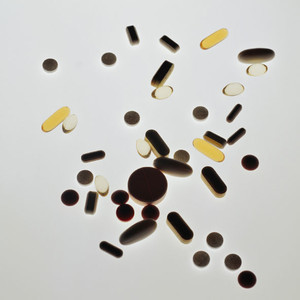Greece is facing a severe drug shortage in more than 200 drugs. The worrying situation is being blamed on drugmakers that have stopped shipping their products to the country due to debts or fear of parallel trade.
Drugmakers accused of stopping shipments to Greece
Home/Pharma News
|
Posted 08/03/2013
 0
Post your comment
0
Post your comment

According to the Greek drug regulator, the National Organization for Medicines, foreign drugmakers have reduced their drug supplies to the country by 90%. The shortages are affecting treatments for arthritis, hepatitis C and hypertension, cholesterol-lowering agents, antipsychotics, antibiotics, anaesthetics and immunomodulators used to treat bowel disease.
The government has drawn up a list of more than 50 pharmaceutical companies, including AstraZeneca, GlaxoSmithKline (GSK), Pfizer, Roche and Sanofi, that it accuses of halting or planning to halt supplies because of low prices in the country. While some companies admitted not supplying some medicines – Pfizer, Roche and Sanofi all said that a few products had been withheld – others (AstraZeneca and GSK) denied that they had any plans to halt supplies.
The companies have been accused of ceasing supplies ‘because Greece is not profitable for them and they are worried that their products will be exported by traders to other richer countries through parallel trade as Greece has the lowest medicine prices in Europe according to Professor Yannis Tountas, President of the National Organization for Medicines.
Greece’s social insurance funds and hospitals owe pharmaceutical companies about Euros 1.9 billion, a debt going back to 2011, which is not helping matters. Roche admitted it had withheld supplies to public hospitals that owed the company Euros 200 million. GSK, on the other hand, said that it had maintained the uninterrupted supply to Greek public hospitals with all its products irrespective of the accumulated debts.
The pharmaceutical industry has hit back at the Greek Government, saying that many of the shortages are caused by products being exported through parallel trade and not by the action of drugmakers. Greece’s drug prices are at least 20% lower than the lowest prices in Europe, fuelling parallel trade. The industry has urged the government to address this by bringing in a new pricing system to make Greek drug prices closer to the European average.
Related article
Permission granted to reproduce for personal and educational use only. All other reproduction, copy or reprinting of all or part of any ‘Content’ found on this website is strictly prohibited without the prior consent of the publisher. Contact the publisher to obtain permission before redistributing.
Source: The Guardian
Guidelines
US guidance to remove biosimilar comparative efficacy studies
New guidance for biologicals in Pakistan and Hong Kong’s independent drug regulatory authority
Policies & Legislation
EU accepts results from FDA GMP inspections for sites outside the US
WHO to remove animal tests and establish 17 reference standards for biologicals
Formycon signs new aflibercept biosimilar pacts and launches ranivisio in Europe

Home/Pharma News Posted 13/11/2025
Bio-Thera and Stada expand biosimilars alliance to include tocilizumab

Home/Pharma News Posted 20/10/2025
The best selling biotechnology drugs of 2008: the next biosimilars targets








Post your comment